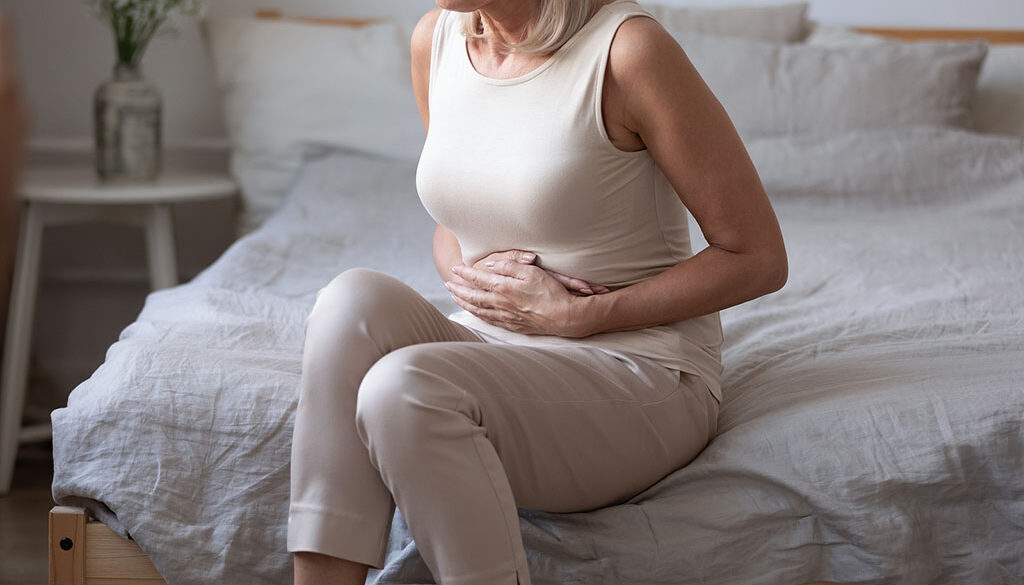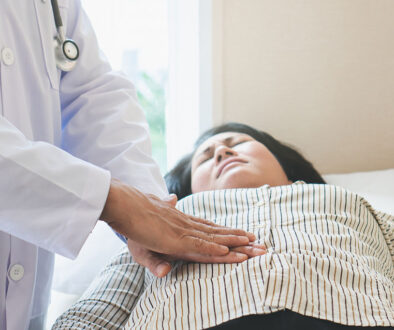Gastritis in Women: Causes, Concerns, and When to Schedule an Appointment
Your stomach lining is a picture of efficient protection. It shields the stomach from harsh digestive acids through a mucus-lined barrier. But when this barrier is inflamed, it sets the stage for conditions like gastritis. In fact, it may surprise you to know that sometimes, the early stages of gastritis don’t show any symptoms—causing it to be easily overlooked until it has progressed.
It’s also possible for men and women to experience gastritis differently, and women are almost twice as likely to develop the condition than men.
And the symptoms? They can include stomach pain and bloating coupled with nausea and vomiting. If left untreated, you could also develop stomach ulcers.
At RMG Gastroenterology, we understand that women have specific, different gastrointestinal needs than men. We had this in mind when we created our Center of Excellence for Women’s Health. Through our Centers of Excellence, we utilize the best evidence-based medicine to find the perfect treatment tailored just for you. For more information about our Centers for Excellence or to schedule an appointment, just contact us.
In this article, we’ll take a closer look at gastritis in women, what causes it and when you should speak with your gastroenterologist in Raleigh.
What Causes Gastritis in Women?
Your stomach lining is inflamed because it’s trying to fight a “threat,” whether that’s an infection or an autoimmune disease.
In our practice, some of the most common causes of gastritis in women we’ve seen include:
- Bacterial and viral infections
- H. pylori infection (H. pylori is a type of bacteria)
- Overuse of NSAIDs such as ibuprofen
- Autoimmune diseases
- Reduced blood supply due to trauma or illness
- Cancer treatment such as radiation therapy or chemotherapy
Gastritis is More Common in Women
Research is ongoing on why women are more likely to have atrophic gastritis than men. In one study, 69% of women had atrophic gastritis as opposed to 31% of men. This means that women may be twice as likely as men to develop this illness: Genetic markers, stronger immune system reactions and specific antibodies all play a role.
What Are The Signs of Gastritis in Women?
The main symptoms of gastritis in women include:
- Loss of appetite
- Stomach pain
- Vomiting
- Nausea
- Bloating
- Indigestion
If gastritis has progressed to the point that you have a bleeding ulcer, you may see black blood in your stool or black blood in your vomit (that looks like coffee grounds).
Unique Gastritis Symptoms in Women: How They Differ from Men
However, there’s much more to the picture. Men and women often experience gastritis differently.
The symptoms between men and women can vary. For example, women with gastritis may also be more likely to develop:
- Iron deficiency anemia
- Lower body weight
- Autoimmune thyroid disease
- Digestive discomfort
- Bloating and indigestion
At RMG Gastroenterology, we stay informed of the latest studies and developments so you can be assured you’ll receive care backed by reliable medical research. We have a crucial understanding of the different experiences men and women have with gastritis.
Do Hormonal Changes Cause Gastritis? Menopause and Gastritis
Gastritis is caused by inflammation of the stomach lining. While hormonal changes by themselves don’t cause gastritis, fluctuating hormones can intensify gastritis symptoms–particularly in those who have IBS.
When Should You See a Doctor About Gastritis?
We mentioned earlier that in its earliest stages, gastritis may not show any symptoms. By the time you’re showing symptoms, the disease has already advanced.
If you’re experiencing any of the following, we encourage you to schedule an appointment with us:
- Consistent stomach pain
- A burning sensation
- Nausea
- Vomiting
- Bloating—even after small meals
- Severe acid reflux
- Unexplained weight loss
We can provide timely treatment to help you before the situation gets worse and progresses to stomach ulcers and bleeding.
What to Expect During Your Visit to RMG Gastroenterology
But what should you expect when meeting with your gastroenterologist about your symptoms? We’ll take you step-by-step through the evaluations you’re likely to encounter in our office.
First, we want you to know that we see you as an individual and not just a cluster of symptoms. For decades, we’ve provided outstanding care for those in Raleigh, the Triangle and surrounding areas, and we invite you to experience our dedication to medical excellence firsthand.
When evaluating you for gastritis and other symptoms we will:
- Take an extensive medical history
- Provide a physical exam to assess your symptoms
- Administer blood tests that can check for autoimmune issues or infections
- Check for H pylori infection through a breath test (H pylori is a very common cause of gastritis)
- If needed, perform an endoscopy, where we use a thin, lighted tube to examine your stomach lining.
How We Treat Gastritis in Women
We know that every patient is different, and that’s why we adopt an individualized approach to medicine. We’ll work closely with you to determine what your best course of action would be. This may include:
- Medication
- Dietary changes (to avoid “trigger foods” that make your symptoms worse)
- Lifestyle adjustments (stress management, reducing alcohol intake and stopping smoking)
Don’t Let Gastritis Disrupt Your Life; Schedule an Appointment Today
At our Center of Excellence for Women’s Health, we know that a woman’s digestive health is closely connected to her overall well-being. Therefore, our dedicated team can focus on treating conditions that uniquely affect women, such as IBS, acid reflux and gastritis.
Schedule an appointment today and experience expert, compassionate care tailored to your needs.
The content within this article and others on this website is only for educational purposes and should not be considered as medical advice. For any questions or concerns, please consult with your healthcare provider.
=====
Sources:
Cleveland Clinic, “Gastritis,”https://my.clevelandclinic.org/health/diseases/10349-gastritis
Heitkemper MM, Chang L. Do fluctuations in ovarian hormones affect gastrointestinal symptoms in women with irritable bowel syndrome? Gend Med. 2009;6 Suppl 2(Suppl 2):152-67. https://pmc.ncbi.nlm.nih.gov/articles/PMC3322543/
Illinois Department of Public Health, “Helicobacter Pylori,” https://dph.illinois.gov/topics-services/diseases-and-conditions/diseases-a-z-list/diseases/helicobacter-pylori.html#:~:text=How%20common%20is%20H.,are%20the%20symptoms%20of%20ulcers?
Johns Hopkins Medicine, Helicobater-pylori,” https://www.hopkinsmedicine.org/health/conditions-and-diseases/helicobacter-pylori
Lahner, Edith, Emanuele Dilaghi, et. al, “Gender-sex differences in autoimmune atrophic gastritis,” Translational Research, Volume 248, October 2022, Pages 1-10 https://www.sciencedirect.com/science/article/abs/pii/S1931524422000883
Mayo Clinic, “Gastritis,” https://www.mayoclinic.org/diseases-conditions/gastritis/symptoms-causes/syc-20355807


